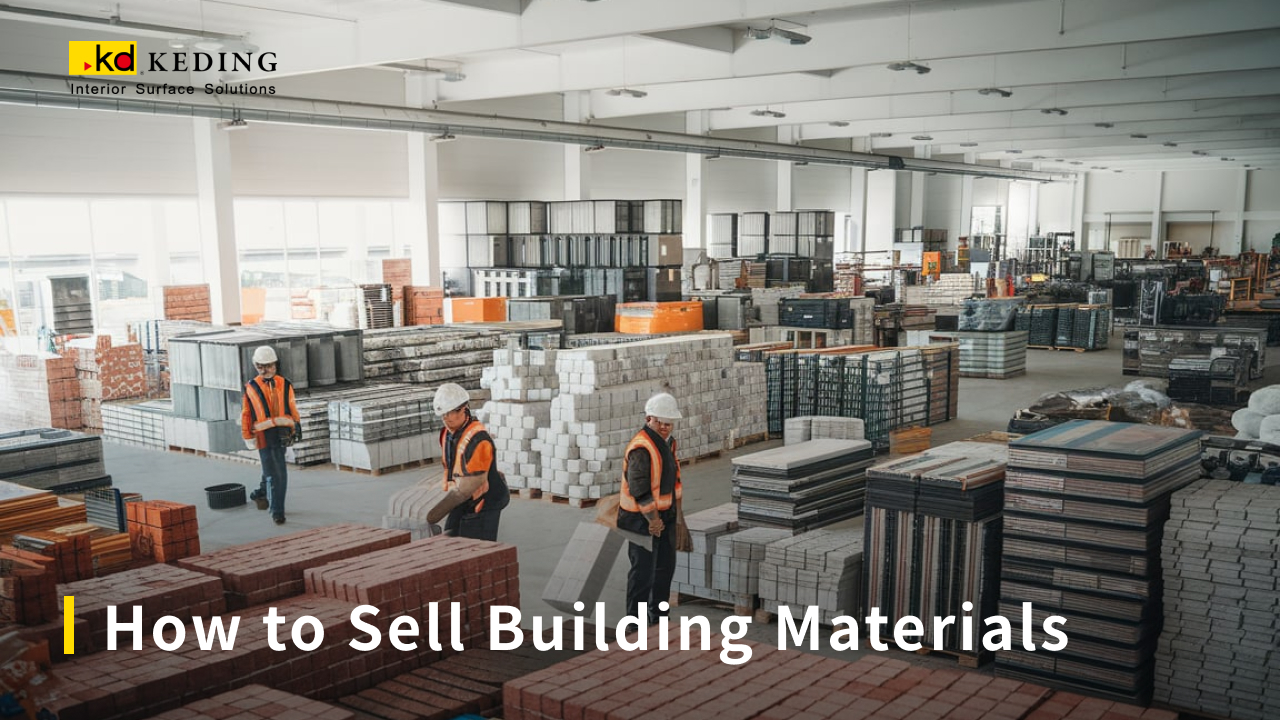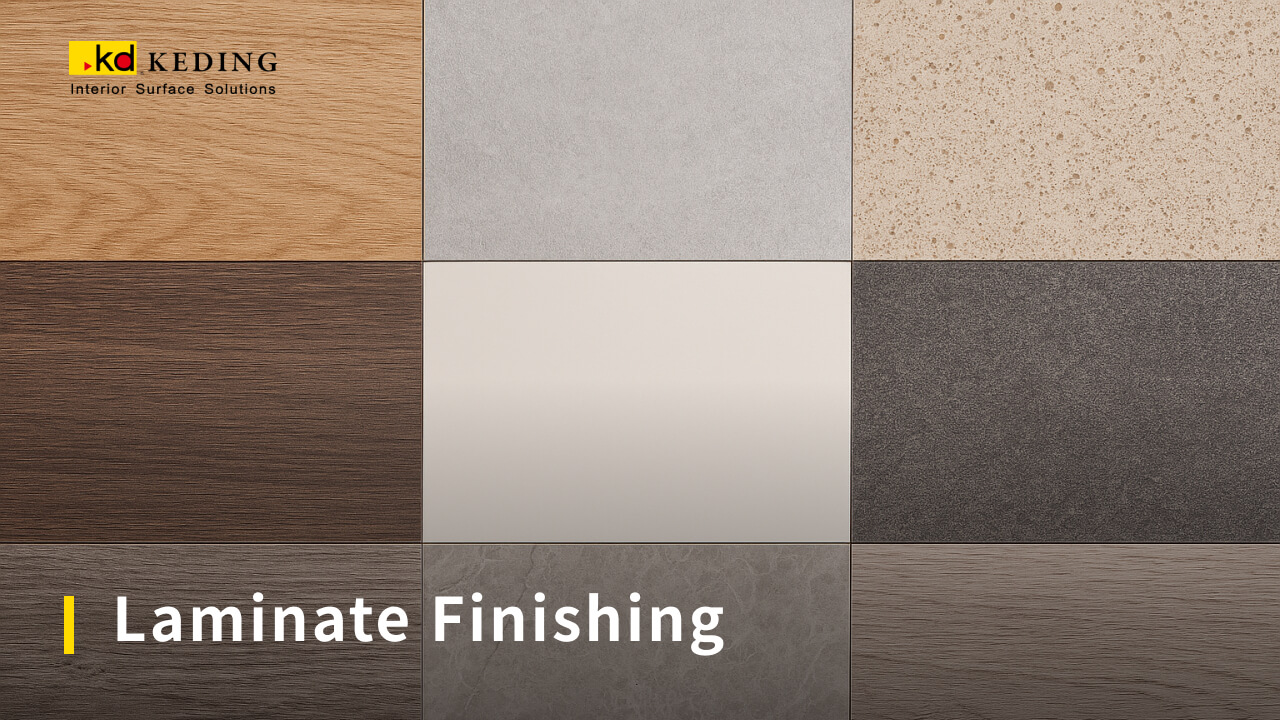Struggling with how to sell construction materials effectively? The challenges of meeting builders’ needs, streamlining operations, and standing out online can feel overwhelming, compared to starting a building materials business.
But with the right sales tips, operational strategies, and online techniques, you can simplify the process, solve customer problems, and grow your business in this competitive industry. In this guide, we gather the best strategies to sell, run, and expand your online sales for building materials. Let’s go!
Table of Contents
15 Best Practices for Selling Building Materials
Selling building materials is more than just offering products like tiles, paint, brick, and also decorative materials like wood veneer or laminates—delivering value, building trust, and creating lasting relationships. Here we explore several practical and impactful ways to enhance your sales approach and earn customer loyalty effectively.
1. Build Strong Relationships with Contractors
Contractors hold the keys to material purchases, making them your most valuable customers. Building strong relationships isn’t just good business—it’s the secret to repeat orders and glowing referrals. Make an impression by offering personalized services, like assigning dedicated account managers who truly understand their project needs.
Take it a step further by hosting exclusive contractor appreciation events. These gatherings aren’t just about showcasing your latest products—they’re opportunities to connect, offer hands-on demos, and gather feedback that keeps you ahead of the game. Contractors value reliability above all else, so be sure to deliver consistent quality and on-time orders.
Stay in touch, adapt to their needs, and watch as one-off sales turn into lasting partnerships.
2. Steal the Spotlight at Trade Shows
Trade shows offer a prime opportunity to showcase your building materials, be it tiles or laminates, to a focused audience of industry professionals. These events enable you to generate leads, expand your network, and stay current with industry trends.
To stand out, invest in an eye-catching booth with professional branding that highlights your unique selling points, such as eco-friendly options or innovative materials. Conduct live demonstrations to engage attendees and show your products in action.
Prepare promotional materials like brochures and samples to leave a lasting impression. It is necessary to collect contact information through interactive tools, like digital sign-ups or giveaways, for effective follow-up.
Trade shows aren’t just about sales—they’re a platform to establish authority in the market and build valuable connections.
3. Earn Trust with Honesty
Honesty is one of the most powerful tools for earning long-term customer loyalty. Be transparent about product capabilities, pricing, and delivery timelines. If a product is out of stock or unsuitable for a customer’s needs, offer honest advice and alternatives rather than overselling.
For example, if a material has limitations, explain how to work around them or suggest a better option. Customers value integrity and are more likely to return and refer your business when they feel they can trust you.
4. Speak Builders’ Language with Tool Integration
Builders rely on tools and software to plan projects and estimate material needs, so aligning your products with these tools can simplify their workflow and increase sales. Collaborate with software providers like construction estimation tools or 3D modeling platforms to include your products in their systems.
For instance, integrating your product specs into popular software like AutoCAD can make it easier for builders to incorporate your materials into their designs. Provide downloadable resources like CAD files, material calculators, or project planning templates. Training customers on how to use these integrations can further enhance usability and position your business as a solution-oriented partner, not just a supplier.
5. Boost Sales with Product Samples and Demos
Seeing is believing. Offering product samples or demonstrations is one of the most effective ways to win over customers. Letting contractors or DIYers experience your materials firsthand helps them assess quality, durability, and ease of use.
For instance, small samples of tiles or wood veneer can be provided to contractors who want to test compatibility with their projects. Host in-store demonstrations or workshops where customers can see how to apply products like adhesives or finishes.
If your business is online, offer virtual demos or ship samples at a minimal cost. Pair the experience with expert explanations from your team, emphasizing unique benefits like strength, eco-friendliness, or cost efficiency. This builds confidence and can lead to faster purchase decisions.
6. Educate with Product Training Videos
Training videos can turn potential customers into loyal buyers by empowering them with knowledge. These videos help explain complex products, showcase proper usage, and answer frequently asked questions, making customers feel more confident in their purchases. Create high-quality tutorials on installing, maintaining, or maximizing the lifespan of your materials.
For example, a step-by-step guide to installing laminate flooring can be extremely helpful for both contractors and DIY enthusiasts. Demonstrate the process of measuring the room, cutting the laminate planks, and properly clicking them into place. Highlight common mistakes to avoid, such as incorrect spacing for expansion gaps. Post these videos or shorts on your website, YouTube channel, TikTok, and social media platforms.
By educating your audience, you position your business as a reliable, go-to resource in the building materials market.
7. Make It Personal with Custom Options
Customizing options for your customers can set you apart from competitors and foster loyalty. Contractors and developers often have specific requirements, such as unique dimensions, finishes, or packaging. Offering tailored solutions shows your commitment to meeting their needs
Work closely with suppliers to provide made-to-order products like pre-cut wood, textured laminates, or color-matched paints. Invest in tools like online configurators that let customers personalize materials during the ordering process. This approach not only enhances customer satisfaction but also encourages repeat business, as they see your business as flexible and customer-focused.
8. Promote Sustainability with Green Options
Sustainability is increasingly important in the construction industry. Offering eco-friendly building materials can help you attract a growing market segment. Many customers—whether contractors, developers, or DIYers—are actively seeking materials that reduce environmental impact. Stock products like recycled concrete, bamboo, or low-VOC paints and prominently label these as eco-friendly options.
Educate your customers about the benefits of these materials, such as reduced energy costs or improved environmental ratings for projects. Highlight your sustainability initiatives through marketing campaigns and certifications, such as LEED compliance or green product certifications.
By aligning your business with sustainability, you not only attract environmentally conscious buyers but also position your brand as forward-thinking and responsible.
9. Set the Bar with Competitive Pricing
Offering fair prices while maintaining quality is key to making your building materials appealing. Regularly research the market to understand competitors’ pricing and find ways to adjust based on demand or seasonal trends.
Moreover, implement pricing strategies that cater to different customer needs. Tiered pricing, for instance, allows you to offer bulk discounts to contractors purchasing large quantities, encouraging higher-volume sales.
Finally, launching loyalty programs can further incentivize repeat business. For example, a contractor purchasing from you regularly could earn better deals after reaching a specific spending threshold or receive exclusive access to new products.
10. Deliver Trust with Top-Tier Quality Assurance
Customers need confidence that the materials they purchase will perform as promised.A good quality check process makes sure your products are reliable and meet high standards. This builds trust and reduces complaints. Work with trusted suppliers who provide certifications and regularly inspect your stock to keep quality consistent.
Clearly communicate your QA practices through marketing materials and product labels. For example, promote certifications like ISO 9001 or “tested for durability” guarantees. By prioritizing quality, you reassure customers they’re making a reliable investment.
11. Respond Fast, Win Big
In the fast-paced construction industry, speed can make or break a deal. Responding quickly to inquiries, quotes, and order requests gives you an edge over other competitors. Set up systems to ensure prompt communication, such as automated acknowledgment emails and quick response times via live chat or phone. Equip your sales team with mobile access to inventory and quoting tools, so they can address customer needs on the go.
A rapid response shows professionalism, reliability, and a commitment to meeting customer demands and securing more sales.
12. Seal the Deal by Following Up on Quotes
Many potential sales slip away because businesses don’t follow up effectively after sending a quote. Following up not only shows professionalism but also reinforces your interest in the customer’s project, which can be a deciding factor for buyers evaluating multiple suppliers.
Contact the customer within 24-48 hours of sending the quote to demonstrate urgency and commitment. Using a personalized approach is also a good way like referencing specific project details discussed earlier to show you’ve paid attention.
For example, “I saw you’re sourcing woodgrain laminates for a residential project. I’d recommend our premium range, which has better durability for high-traffic areas.” Add value by offering special deals, promotions, or upgrades to lock in the deals.
By being proactive, addressing questions, and showcasing added value, you can turn quotes into closed deals and build lasting customer relationships.
13. Convenience with Local Store Pickup
Convenience is a powerful selling point, especially for contractors who need materials quickly to keep projects on schedule. Offering local store pickup bridges the gap between traditional retail and online shopping, allowing customers to place orders digitally and collect them in person.
Set up an easy-to-use system where customers can choose a “Pick Up In-Store” option during checkout. Designate a dedicated area in the store for pickups, streamlining the process and minimizing wait times. This hybrid approach not only saves customers time and money on shipping but also enhances their overall shopping experience.
14. Enhance Loyalty with Follow-Up Services
Great customer service doesn’t end with a sale—it begins there. Following up with customers after a purchase helps build trust and ensures satisfaction. Implement a system to check in with buyers via email or phone a few days after delivery, offering support or gathering feedback. Provide warranties, troubleshooting guides, or free consultations to address concerns or maximize the value of your materials.
For example, if a contractor purchases a batch of tiles or laminates, follow up with tips on maintenance and installation or a discount for future grout purchases. Quickly solving problems shows you care about your customers. This helps turn happy buyers into loyal clients who will come back for future purchases.
15. Grow Through Referrals
Word-of-mouth referrals are one of the most cost-effective ways to bring growth to your business. Contractors and developers often recommend reliable suppliers within their networks. Encourage satisfied customers to refer your business by offering referral incentives, such as discounts or account credits.
Share customer reviews and success stories in your marketing to highlight positive experiences. A strong reputation for great service and reliability encourages word-of-mouth referrals. Happy customers become your advocates, helping you reach more people.
Strategies for Operating a Building Material Business
Running a building material business efficiently requires a focus on operations, customer satisfaction, and industry adaptability. By implementing key strategies like streamlining sales processes and building strong stakeholder relationships, you can improve performance, reduce inefficiencies, and build a trustworthy reputation. We recommend these actionable approaches to help you manage your business effectively.
Streamline Your Sales Process
Optimize your sales process by using CRM tools to manage customer data, track orders, and automate follow-ups. Standardize pricing and bulk quotations to eliminate confusion and ensure professionalism.
Offer flexible payment options, including online payments through PayPal, and credit terms for reliable clients to encourage repeat business. Train your sales team to upsell complementary materials, such as tools or adhesives, to increase order value while meeting customer needs.
Create Clear Return and Refund Policies
Transparent return policies build trust and reduce customer frustration, especially in a sector where product quality is critical. Set clear time limits and rules for product returns so customers feel secure buying from you. Use automated systems for refunds to speed up the process and make it easier for everyone.
Regularly analyze return data to uncover and address recurring issues, like product defects or inadequate packaging, improving your offerings. A detailed FAQ section on your website helps guide customers through the process, reducing inquiries and enhancing satisfaction—key to maintaining credibility in a competitive market.
Keep Your Inventory at Your Fingertips
Good inventory management helps you avoid running out of stock or delaying orders, which keeps your customers happy. It also protects your business from bad reviews caused by canceled orders. Using inventory software makes it easier to track your stock across all sales channels.
You can set alerts for low stock and reminders to reorder popular items on time. Regularly updating your inventory records ensures you always know what’s available and can rely on accurate information.
Build a Memorable Brand Image
In a competitive industry where price and quality matter most, building a strong brand image helps you stand out and earn customer trust. A professional logo, consistent packaging, and an easy-to-use website showcase reliability and professionalism. Highlight your unique selling points—such as offering eco-friendly materials or warranties—to attract environmentally conscious clients and build confidence in your products.
You can also boost your brand through trade publications, email newsletters, and industry forums. Share success stories, case studies, and expert tips on platforms like LinkedIn or during webinars to engage your audience and establish authority. Use analytics tools to track your branding efforts, ensuring your strategy resonates and drives meaningful connections.
Strengthen Stakeholder Relationships
Working with vendors to get bulk discounts and good terms helps you keep costs low and ensures you always have the materials you need. This makes it easier to meet customer demand without overspending. Providing personalized solutions and great after-sales service builds loyalty with contractors, who are a key part of your customer base.
Asking for feedback through surveys or conversations helps you understand what your customers need and where you can improve. This builds trust and strengthens your partnerships. Strong relationships with suppliers and customers lead to repeat business and a steady supply of materials, which is crucial for success in a competitive market.
Prioritize Staff Training and Development
Well-trained employees are your business’s greatest asset, especially in a field requiring technical knowledge and excellent service. Equip your team with expertise through workshops on product features, customer service skills, and sales techniques. Staying updated on trends like sustainable materials not only keeps your business competitive but also positions your staff as trusted advisors.
Of course, don’t forget to recognize and reward employee achievements as it fosters motivation and loyalty. Empowered employees deliver exceptional service, boosting customer confidence and elevating your reputation in the building materials industry.
How to Sell Building Materials Online Successfully
Selling building materials online can open up a vast customer base and increase revenue potential. However, this requires a strategic approach tailored to the unique nature of building supplies. Here we list out some insights to help you thrive in the digital marketplace.
Start an Online E-commerce Store
An e-commerce store serves as the cornerstone of your online sales strategy. It allows you to showcase your products, reach a wider audience, and provide 24/7 access to your inventory. Unlike physical stores, an e-commerce platform eliminates geographical limitations, opening doors to more customers.
The most common approach is to choose an existing e-commerce platform like Shopify, that supports large inventories. Create categorized product listings for easy navigation—think “Decorative Laminates,” “Wood Veneers,” and “Eco-Friendly Materials.” Include detailed product descriptions, images, and specifications to help customers make informed decisions. You can add a live chat feature to instantly answer customer queries and boost conversions.
Craft an Exceptional Online Shopping Experience
A well-designed website ensures customers can find what they need quickly, improving the likelihood of a purchase. Good design and user experience (UX) establish trust, reduce bounce rates, and make navigating your site intuitive.
Prioritize a clean, professional design with easy navigation. Use high-quality images of your products, and optimize for mobile, as many buyers browse on their phones these days. Speed matters, so minimize load times using tools like Google PageSpeed Insights. Include a search bar, filters, and sorting options to help users find specific materials faster.
Turn Clicks into Customers with SEO
SEO drives long-term, free traffic to your website, helping you rank for search terms like “buy cement online” or “eco-friendly building materials.”Being at the top of search results boosts your visibility and positions your brand as a trusted leader in the industry.
Conduct keyword research with tools like Google Keyword Planner to find relevant search terms. Optimize product pages with targeted keywords in titles, descriptions, and alt text for images.
Create a blog with valuable content and engaging titles, such as “Top Sustainable Building Materials for 2024” or “5 Tips for Buying Bulk Laminates.” Remember to regularly update your website and your blog content to stay relevant and maintain search rankings.
Spark Conversations and Connections on Social Media
Social media is a powerful tool for engaging customers, showcasing products, and driving traffic to your website. It allows you to reach professionals like contractors and DIY enthusiasts where they already spend their time.
Social media platforms like Instagram, Facebook, and TikTok are great for showcasing product demos, sharing customer success stories, and offering industry tips. They help personalize your business and create meaningful connections with your audience, building trust and engagement.
For B2B connections, try LinkedIn to share industry insights and testimonials from satisfied customers. You can even consider partnering with influencers in the construction or DIY niche to expand your reach and credibility.
Amplify Your Reach with Strategic Ads
Paid ads quickly boost visibility and attract targeted traffic to your store. Platforms like Google Ads and social media campaigns are highly effective for reaching buyers who are actively searching for building materials, helping you connect with high-intent customers ready to purchase.
Set up Google Ads campaigns targeting keywords like “buy laminates/wood veneers in bulk” or “discount tiles near me.” Use Facebook or Instagram ads to target homeowners and DIY enthusiasts, leveraging geo-targeting to reach nearby customers. Refine your ad and landing pages with an A/B test to identify what resonates best with your audience.
Let Online Reviews Speak for You
Nothing is more convincing than feedback from your past customers. Positive reviews build trust and strongly influence buying decisions. Many customers check reviews to judge the quality of your products and your reliability as a seller.
Showcase great reviews on your product pages or social media to highlight customer satisfaction. If you receive negative reviews, address them quickly and professionally to show accountability and a commitment to resolving issues.
Become a Distributor at Keding: Grow Your Business with Premium Laminate Solutions
The key to selling building materials successfully is understanding and solving builders’ problems. Focus on their challenges with smart sales strategies, efficient operations, and a strong online presence. By being reliable, helpful, and customer-focused, you’ll build trust, foster lasting relationships, and set your business up for steady growth in this competitive market. Above all, partnering with a dependable supplier will further ensure your success in selling building materials.
Partner with KEDING, the leading brand of laminates, to unlock limitless business growth. As a distributor, you’ll gain exclusive rights in your region, ensuring market dominance and high profits by sourcing directly from our factory. Our eco-friendly, high-quality laminates are perfect for residential, commercial, and hospitality projects, offering immense market potential. Enjoy extensive support, including free catalogs, professional marketing tools, CRM systems, customer training, after-sales service, and real-time inventory allocation. With streamlined logistics and flexible solutions, we make it easy to succeed.
Contact us to schedule a consultation today to learn how you can become a Keding authorized distributor!








